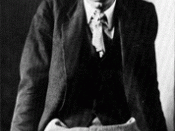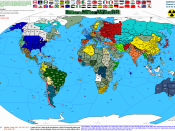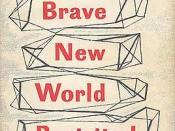Now suppose that paradise exists. Suppose this paradise is very different from traditional notions of what paradise would look like in its most phenomenal form. There is no servant pouring delectable wine, no maidens feeding grapes to recipients of this majesty. Instead, the perfect world is a small island called Pala, with no military, no industrialization, and no developed technology. Education, tranquility and spirituality are like the trinity of important values in this the Brave New World. In the end, it was Aldous Huxley, not George Orwell (whom Huxley taught at Eton), whose vision of the future had the touch of prophecy. The modern world did not collapse into the cold, damp totalitarian hell Orwell described in his 1948 novel 1984. What has happened is closer to Huxleyôs vision of the future in his astonishing 1931 novel Brave New World -- a world of tomorrow in which capitalist civilization has been reconstituted through the most efficient scientific and psychological engineering, where the people are genetically designed to be passive, consistently useful to the ruling class.
An omniscient narrator tells the story. In the first part a lot is told about Bernard Marx and in another part a lot is told about John the Savage. Brave New World is not only a Utopian book- Utopia meaning an imaginary perfect social and political society, it is also a science-fiction novel. But it does not predict much about science in general. Huxley the was more worried about dangers that appeared more obvious at that time- the possible misuse of biology, physiology, and psychology. But the philosophy of the island has a logical flaw. As scornfully ironic as it is disturbing, Brave New World is set some 600 years in the future, in "this year of stability, A.F. 632" -- the A.F. stands...


